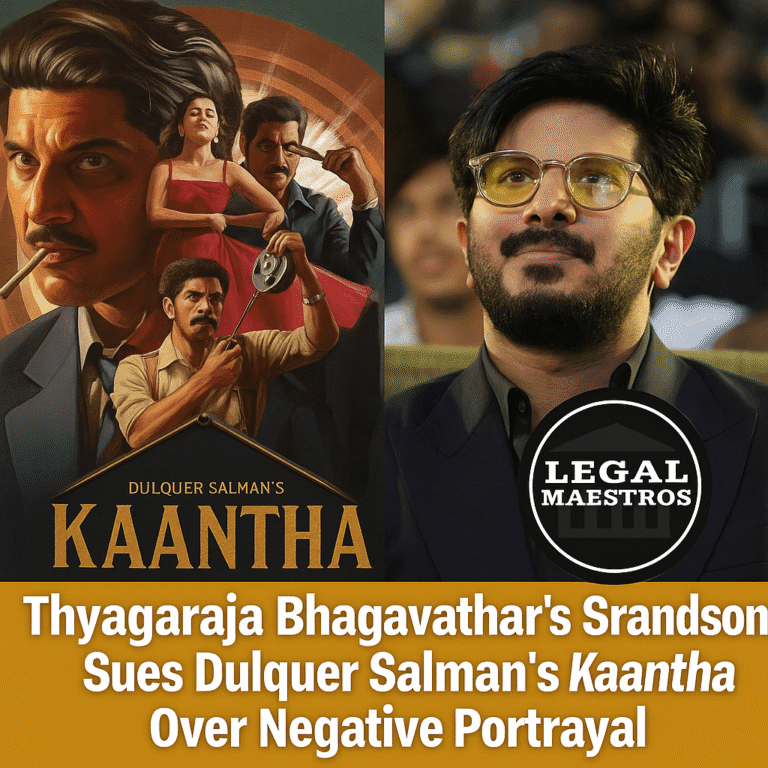
Supreme Court in The Wire Defamation Saga Advocates Decriminalization
Although the law has an exception, including statements in good faith in the best interest of the country, the process itself is frequently perceived as the punishment. Critics and journalists believe that this law is used by influential people to intimidate and silence them. Simple filing a criminal case has the potential to be followed by years of legal cases, courtrooms and financial pressure which is also a deterrent to investigative journalism.
This has the effect of instilling what is called a chilling effect whereby reporters are afraid of publishing negative articles against influential individuals lest they would be charged as criminals and imprisoned as a result.
The constitutionality of criminal defamation has, in fact, been previously affirmed by the Supreme Court who opined that criminal defamation right to reputation is included in the underlying right to life. At least, its new remarks in The Wire case indicate an increasing concern about the manner in which the law is being enforced.
For any queries or to publish an article or post or advertisement on our platform, do call at +91 6377460764 or email us at contact@legalmaestros.com.
The judges noted that although the reputation of a person should be upheld, criminal law to ensure that a journalist is sent to jail may be disproportionate and too much. The court noted the clear contrast between an ordinary citizen and a journalist and said that people working in the field of information distribution may require more protection against such violent laws.
A Call for Decriminalization
In the hearing, the Supreme Court presented a strong argument of reconsidering the criminal defamation. The court said there must be a profound debate on whether this law is applicable in contemporary democracy. Judges were worried that the imminence of imprisonment is an excessive burden to the freedom of press, which is regarded as the fourth pillar of democracy. They opined that the journalists that play an important role in the society by checking the power should not have the sword of Damocles hanging on their heads in the form of a possible jail term to their stories.
The advocacy by the court was inclined to civil remedies rather than the criminal punishment. The civil defamation case is where the individual who feels he or she has suffered due to the loss of reputation sues to claim the money. The aim is to recompense the victim the loss that he has incurred. Conversely, a criminal case is supposed to provide punishment to the criminal.
For any queries or to publish an article or post or advertisement on our platform, do call at +91 6377460764 or email us at contact@legalmaestros.com.
The questioning of the Supreme Court suggested that a more proper and fair solution can be the financial compensation. This would not even defend the reputation of the person, but would eliminate the fear of criminal conviction and jailing that can be abused to subdue dissent and questioning.
This position is not new in the world; it is crucially important to note that numerous mature democracies have repealed their criminal defamation law or applied it very sparingly. Other countries who inherited this law such as the United Kingdom have decriminalized defamation, as they know that this is an anachronism that acts as a stifler to free expression. The thesis is that the public personalities in a free society are supposed to be more scrutinized and the media given a chance to report about them without any possibility of being jailed.
The remarks of the Indian Supreme Court are beginning to follow this worldwide trend also, wherein it is indicated that India should also re-examine the question of whether it needs a law that will deem a verbal or a written attack as a criminal offense and deserve a prison cell.
For any queries or to publish an article or post or advertisement on our platform, do call at +91 6377460764 or email us at contact@legalmaestros.com.
Impact on the Freedom of the Press
The presence of a criminal defamation statute has a far-reaching and extensive effect on the operations of a free press, which can be negative. In the case of journalists, their major interest is to discover and publish the truth particularly those stories that implicate those in authority.
This usually involves releasing information that such people would rather not know. In the case where the aftermath of such a story can be a criminal trial and jail time, it compels news organizations and journalists to self-censure. They can simply refuse to discuss delicate or sensitive issues that the people badly require.
This chilling effect is detrimental to the democracy itself which is exposed to free information and open discussion. A fearful press cannot be a watchdog because it cannot investigate and ask questions. It is also this position that guarantees transparency and accountability by the government and other strong institutions. The observations by the Supreme Court in the case of The Wire indicate that they have comprehended this dynamic.
For any queries or to publish an article or post or advertisement on our platform, do call at +91 6377460764 or email us at contact@legalmaestros.com.
Through the recommendation of a review of the law, the court is recognizing that the right to know is one of the pillars of a healthy democracy and should not be jeopardized by the law which can be easily used as a tool of intimidating journalists.
The struggle that ‘The Wire’ went through with the law is a classic example of such struggles. The journalists have insisted that they had published a story that was founded on official documents in the interest of the people. Nevertheless, they have been forced to take years and lots of resources to prove themselves innocent in a court of law.
The experience is a warning to other media houses and journalists. Defamation might be decriminalized, and this would be a titanic move towards enabling the press to perform its obligations without the fear of being criminally prosecuted always hovering over its head hence creating a more healthy and bold media environment.
For any queries or to publish an article or post or advertisement on our platform, do call at +91 6377460764 or email us at contact@legalmaestros.com.



![JOB POST: Junior Associate at ASM Law Chambers, Jaipur [Freshers]](https://legalmaestros.com/wp-content/uploads/2025/11/Gemini_Generated_Image_8wrxer8wrxer8wrx-768x708.png)

